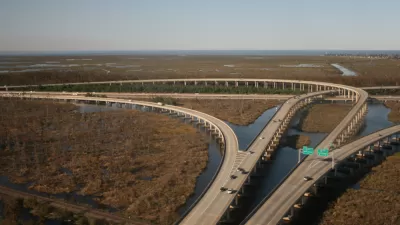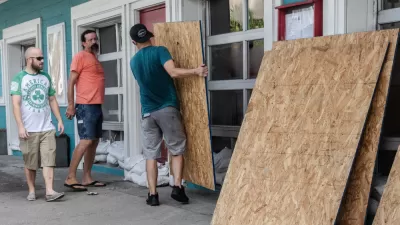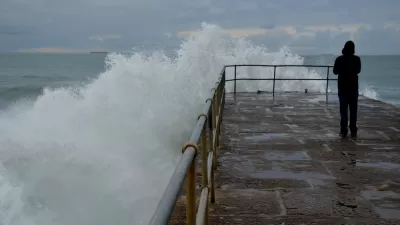As cities around the world face the effects of climate change head on, they have been pushing policy forward and taking action at the local level. But they are also creating networks that have a much broader impact beyond individual cities.

Cornelia Colijn considers the reasons cities are leaders in climate change policy. One reason is that cities are not mobile and compared to individuals who can relocate to avoid threats. "This means that as the effects of climate change take root in our urban areas, cities are forced to be early adopters to cutting edge adaptation strategies. In other words, cities cannot run, but must stand and fight,” says Colijn.
At the city level, it would make sense for cities to focus on adaptation rather than mitigation. But they tend to institute mitigation strategies because residents and public officials view the universal value of climate change policies and because cities participate in fair-share agreements like the Paris Agreement. Cities might also pursue mitigation efforts because of the related benefits, such as improvements in public health.
In addition, networks of cities are a way to challenge national and global governments and institutions to address climate change. "In a future where it is all-too-likely that climate action will be insufficient, creating a network of like-minded urban areas may be the key organizing challenge facing cities that want to do something to respond to climate change," notes Colijn.
FULL STORY: Early adopters in confronting climate: cities

Planetizen Federal Action Tracker
A weekly monitor of how Trump’s orders and actions are impacting planners and planning in America.

Maui's Vacation Rental Debate Turns Ugly
Verbal attacks, misinformation campaigns and fistfights plague a high-stakes debate to convert thousands of vacation rentals into long-term housing.

San Francisco Suspends Traffic Calming Amidst Record Deaths
Citing “a challenging fiscal landscape,” the city will cease the program on the heels of 42 traffic deaths, including 24 pedestrians.

Amtrak Rolls Out New Orleans to Alabama “Mardi Gras” Train
The new service will operate morning and evening departures between Mobile and New Orleans.

The Subversive Car-Free Guide to Trump's Great American Road Trip
Car-free ways to access Chicagoland’s best tourist attractions.

San Antonio and Austin are Fusing Into one Massive Megaregion
The region spanning the two central Texas cities is growing fast, posing challenges for local infrastructure and water supplies.
Urban Design for Planners 1: Software Tools
This six-course series explores essential urban design concepts using open source software and equips planners with the tools they need to participate fully in the urban design process.
Planning for Universal Design
Learn the tools for implementing Universal Design in planning regulations.
Heyer Gruel & Associates PA
JM Goldson LLC
Custer County Colorado
City of Camden Redevelopment Agency
City of Astoria
Transportation Research & Education Center (TREC) at Portland State University
Jefferson Parish Government
Camden Redevelopment Agency
City of Claremont





























